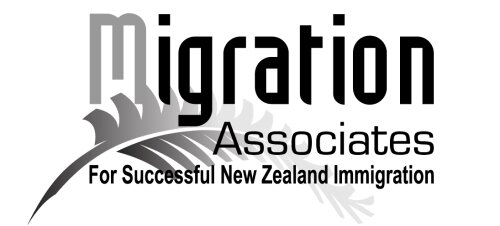Best Franchising Lawyers in New Zealand
Share your needs with us, get contacted by law firms.
Free. Takes 2 min.
Or refine your search by selecting a city:
List of the best lawyers in New Zealand
About Franchising Law in New Zealand
Franchising in New Zealand is a popular business model that allows individuals to own and operate a business under an established brand. It involves a franchisor, who owns the brand, and a franchisee, who pays a fee to operate under the brand's name and benefit from the franchisor's business systems, support, and marketing. New Zealand's franchising industry is robust and diverse, covering industries like hospitality, retail, and automated services, among others. The regulatory framework involves a combination of general contract law and industry-specific codes, emphasizing the importance of robust legal agreements and compliance with fair trading standards.
Why You May Need a Lawyer
Engaging a lawyer in franchising is crucial in various scenarios. Firstly, legal guidance is fundamental when drafting or reviewing franchise agreements to ensure terms are fair and compliant with New Zealand's regulations. A lawyer can also assist in interpreting contractual obligations, which is essential when disputes arise between franchisors and franchisees. Moreover, entering or exiting a franchise involves complex legal considerations that require skilled legal advice to safeguard your interests and facilitate smooth business transitions. Lastly, compliance with legislative requirements and resolving trademark or intellectual property issues also necessitate expert legal assistance.
Local Laws Overview
In New Zealand, franchising is primarily governed by contract law, alongside the Fair Trading Act 1986 and the Commerce Act 1986, which address issues like deceptive conduct and anticompetitive practices. There is no specific franchise legislation; however, the Franchise Association of New Zealand provides guidance through the Franchise Code of Practice, setting best practice standards. It's vital for franchisors to provide a disclosure document to prospective franchisees, detailing the business framework, financial statements, and the franchise agreement's full terms. Understanding these legal aspects can help prevent disputes and enhance a franchise's success.
Frequently Asked Questions
What is involved in a franchise agreement?
A franchise agreement is a legally binding document outlining the rights and obligations of both the franchisor and franchisee. It covers elements like fees, territory, duration, training, and operational guidelines.
Do I need to adhere to the Franchise Code of Practice?
While adherence to the Franchise Code of Practice is not mandatory, it is highly recommended. Compliance with the code demonstrates commitment to ethical franchising practices and can help prevent disputes.
How can a lawyer help during the franchise agreement review?
A lawyer ensures that the franchise agreement terms protect your interests, are reasonable, and comply with New Zealand's relevant laws, preventing costly legal disputes in the future.
What if I want to terminate my franchise agreement?
Termination of a franchise agreement typically involves adhering to specific contractual conditions. A lawyer can help navigate these conditions and manage the legal implications to minimize risk and potential financial penalties.
Are there specific disclosure requirements for franchisors?
Yes, franchisors are expected to provide a comprehensive disclosure document to potential franchisees. This document should encompass financial information, details of the franchise system, and terms of the agreement.
Can international franchisors operate in New Zealand?
International franchisors can enter New Zealand's market, but it's advisable to adapt the franchise agreement to comply with local laws and consult with a local lawyer to navigate the process effectively.
What disputes typically arise in franchising?
Common disputes include breach of contract, misrepresentation during the sale, non-compliance with brand standards, and territory infringement. Legal support is essential to address these issues promptly and efficiently.
How is intellectual property protected in a franchise?
The franchise agreement should outline measures for protecting trademark, trade secrets, and other intellectual property. Legal counsel ensures these protections are robust and legally enforceable.
Do I need to register my franchise business in New Zealand?
No specific franchise registration process exists, but standard business registration requirements apply. It's crucial to ensure all legal and regulatory obligations are met through competent legal advice.
How can I find a reputable franchise lawyer in New Zealand?
Seek recommendations from the Franchise Association of New Zealand or legal directories. Ensure the lawyer you choose specializes in franchising law and has a verifiable track record of success in handling similar cases.
Additional Resources
The Franchise Association of New Zealand is an invaluable resource for anyone interested in franchising. Furthermore, the New Zealand Commerce Commission and Ministry of Business, Innovation and Employment provide useful information on compliance and fair trading laws. Legal guides and publications from reputable law firms can also offer insights into the intricacies of franchising law.
Next Steps
If you are considering entering into a franchise agreement or facing a legal issue related to franchising, reaching out to a lawyer specializing in franchising law should be your first step. Compile all relevant documents, including existing contracts and communications, to help your lawyer assess your situation thoroughly. Attend an initial consultation to outline your goals or concerns, and work together to develop a legal strategy tailored to your needs. Ongoing legal support ensures your franchise operates smoothly and within the bounds of New Zealand's legal framework.
Lawzana helps you find the best lawyers and law firms in New Zealand through a curated and pre-screened list of qualified legal professionals. Our platform offers rankings and detailed profiles of attorneys and law firms, allowing you to compare based on practice areas, including Franchising, experience, and client feedback.
Each profile includes a description of the firm's areas of practice, client reviews, team members and partners, year of establishment, spoken languages, office locations, contact information, social media presence, and any published articles or resources. Most firms on our platform speak English and are experienced in both local and international legal matters.
Get a quote from top-rated law firms in New Zealand — quickly, securely, and without unnecessary hassle.
Disclaimer:
The information provided on this page is for general informational purposes only and does not constitute legal advice. While we strive to ensure the accuracy and relevance of the content, legal information may change over time, and interpretations of the law can vary. You should always consult with a qualified legal professional for advice specific to your situation.
We disclaim all liability for actions taken or not taken based on the content of this page. If you believe any information is incorrect or outdated, please contact us, and we will review and update it where appropriate.
Browse franchising law firms by city in New Zealand
Refine your search by selecting a city.

















